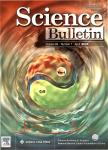An invariance principle for negatively associated random variables
An invariance principle for negatively associated random variables作者机构:Department of Mathematics and Information Science Hangzhou University Hangzhou China
出 版 物:《Chinese Science Bulletin》 (科学通报(英文版))
年 卷 期:1997年第42卷第5期
页 面:359-364页
核心收录:
学科分类:02[经济学] 0202[经济学-应用经济学] 020208[经济学-统计学] 07[理学] 0714[理学-统计学(可授理学、经济学学位)] 070103[理学-概率论与数理统计] 0701[理学-数学]
基 金:National Natural Science Foundation of China,NSFC Natural Science Foundation of Zhejiang Province,ZJNSF
主 题:negatively associated random variables weak invariance principle.
摘 要:A finite collection of random variables, X1,…, Xn (n≥2), is said to be negatively associated (NA) if any two coordinatewise nondecreasing (or nonincreasing) functions f1 and f2 on Rn, such that (?)j=fj(X1,…,Xn) have a finite variance for j=1, 2 and Cov((?)1,(?)2)≤0; an infinite collection is said to be NA if every finite subcollection is NA. It is relative to a lot of practical problems, such as reliability theory, percolation models and multivariate statistical analysis. Matula (1992) studied the strong laws of large numbers for an NA sequence. Recent-



